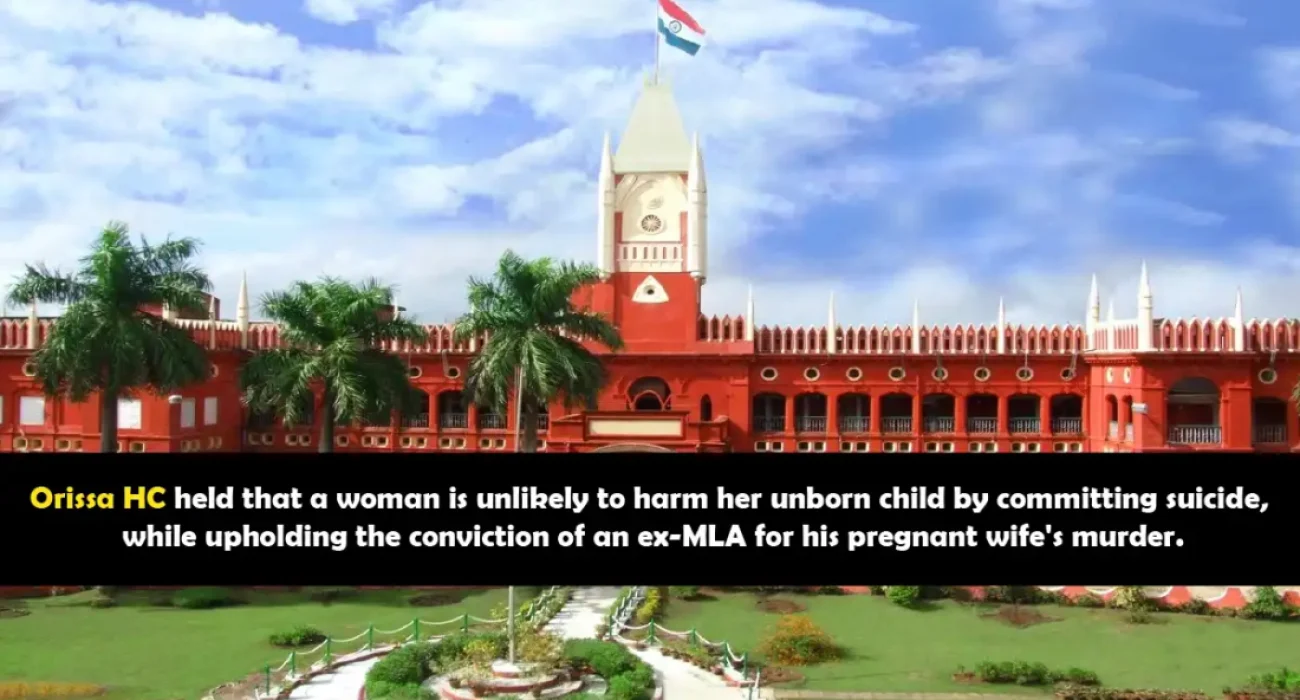

Table of Contents
ToggleThe Orissa High Court upheld the conviction and life sentence of former MLA for the murder of his pregnant wife in 1995. The crime occurred at their official residence in Bhubaneswar. On August 29, 1995, the appellant reportedly heard his wife scream and discovered smoke coming from the locked bathroom. After breaking open the door, she was found ablaze and died immediately. An unnatural death case was registered, but subsequent investigations led to the ex- MLA being charged under Sections 302 and 201 of the IPC for murder and evidence destruction. In 2023, a trial court found him guilty, prompting his appeal to the High Court.
The appellant argued that there was no motive for the murder, as no tension existed between him and his wife. He pointed out that the post-mortem attributed her death to asphyxia from smoke inhalation, without concluding whether it was suicide or homicide. The appellant suggested that low oxygen levels from a fire could lead to such deaths, questioning the prosecution’s claim of homicide.
The State maintained that the deceased was incapacitated before being set on fire. They emphasized evidence showing that she had been overpowered, contesting the appellant’s claim of self-immolation. The prosecution pointed to a lacerated wound on the back of her head, indicating blunt force trauma that suggested foul play.
The High Court emphasized the significance of the deceased’s cries, which were calls for help (“marigali, marigali”), suggesting a plea for rescue rather than acceptance of self-harm. The bench found it unlikely that a woman committing suicide would scream in such a manner. Additionally, the Court noted suspicious behaviour by the appellant, including inconsistent injuries and the lack of substantial damage to the bathroom door, which undermined his defense. His choice to contact the police rather than seek immediate medical help was seen as further evidence of guilt. The presence of injuries and a broken glass panel pointed to possible physical conflict.
The Court also referred to medical evidence revealing a lacerated wound on the deceased’s head, suggesting blunt force trauma before the fire, supporting the prosecution’s theory. The deceased was found to be 14-16 weeks pregnant, and the Court doubted that a mother would harm herself and her unborn child without substantial cause. It observed, “The maternal instinct to protect an unborn child is a powerful force, and it is highly unlikely that a woman in her second trimester, who was carrying a fetus would deliberately seek to harm herself or her unborn baby without a compelling cause. The absence of any evidence suggesting emotional distress, a suicidal mindset, or any circumstantial triggers that could lead a pregnant woman to take such a drastic step further diminishes the likelihood of suicide.”
The Court upheld the trial court’s 2023 conviction of the ex-MLA, affirming that the evidence—including medical findings and the appellant’s conduct—decisively proved his guilt. Additionally, it criticized the trial’s slow progress, noting the 18-year delay in framing charges and a subsequent decade before judgment. The Court held that while some delays were due to the appellant, the trial court also contributed through prolonged adjournments, impacting procedural justice.
IAW resources
Browse our help directory